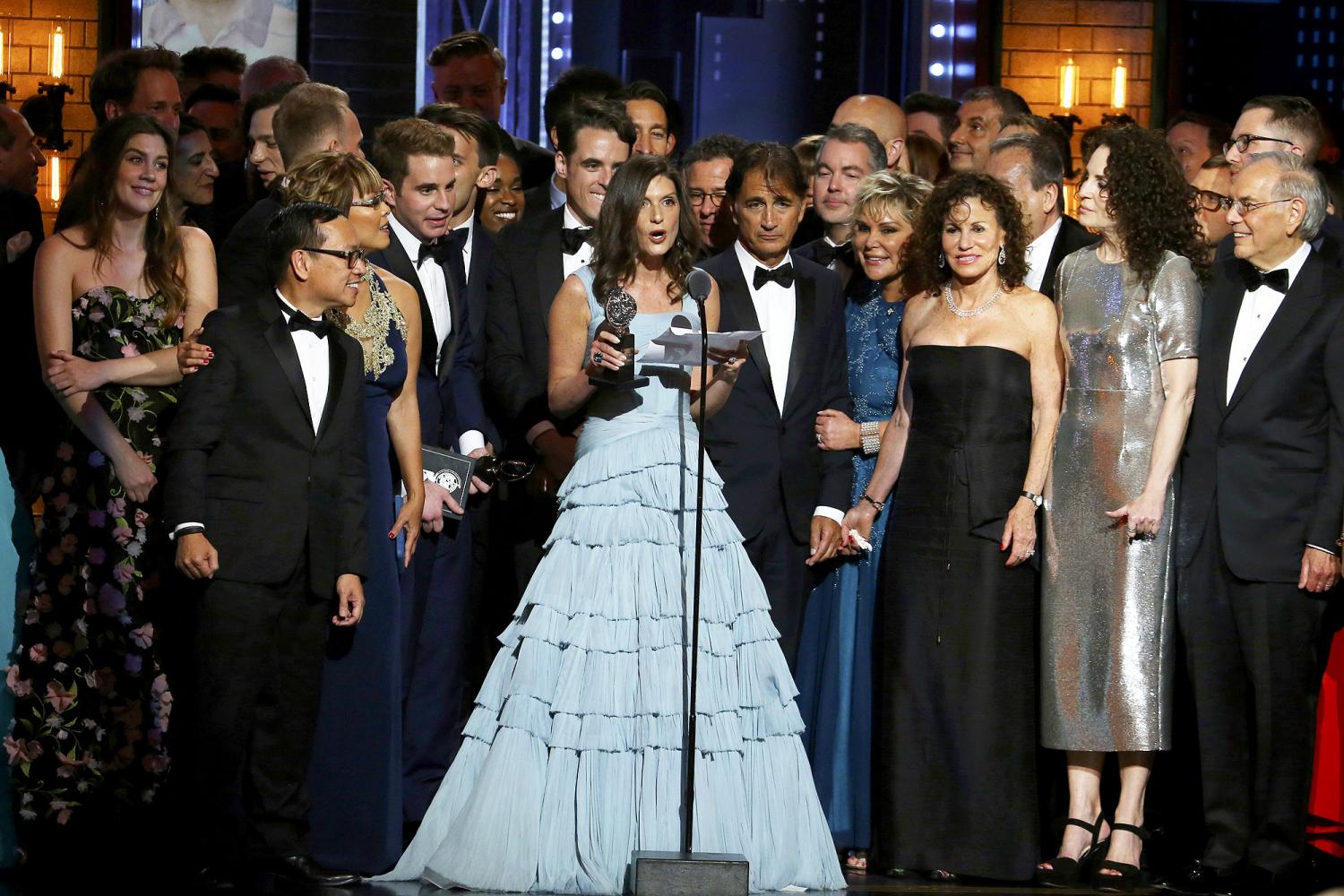Tony Awards: On Upsets and Big Steps
The cast and crew of Dear Evan Hansen after winning best musical at the 71st annual Tony Awards
June 15, 2017
Right after “Dear Evan Hansen” won best musical at the 71st annual Tony awards, the internet broke out into an uproar about the apparent upset. “’Great Comet’ was robbed” and “’Falsettos’ was robbed” flooded my feeds on multiple social media. It was chaotic and understandable, but as someone who loves “Dear Evan Hansen,” I couldn’t help but feel a bit annoyed at all of the complaints.
Of course, I have only listened to a few songs from the other musicals nominated, and only watched the performances which were displayed at the Tony’s, so my judgement on whether or not any other musicals deserved to win is a bit skewed.
Perhaps I feel a need to defend “Dear Evan Hansen”‘s win because its music was beautifully composed and every harmony sent a chill down my spine and lit a fire within my ears. Though, to be honest, my reason for liking Dear Evan Hansen is rooted deeply into how relatable I found it.
The main character. Evan Hansen, grew up with a single mom who was extremely busy and had little time to focus on him, a plot point that I could easily identify with as I also grew up with a single mom who seemed to be constantly working. Evan also had extreme clinical social anxiety, a quality in himself that dictated most of his life. His only friend was a “family friend” who was insistent that he only interacted with Evan so that his family would pay for his car insurance. Overall, Evan’s life was lonely and his struggle with his mental illnesses was at its worst.
Mental illness is a bit of a taboo in entertainment, and if it is integrated into the plot of anything it tends to be mishandled in a way that further perpetrates harmful stereotypes. From people with dissociative identity disorder (DID) being portrayed as psychopaths, to suicidal people being portrayed as angsty teens obsessed with death and darkness, mental illness is never shown in a protagonist or a well rounded side character.
This is what makes “Dear Evan Hansen” so great: not only is Evan Hansen the main character, but his struggle with mental illness breaks multiple cliches. Evan’s anxiety doesn’t magically disappear, his bravery and overcoming of many struggle doesn’t mean that he’s suddenly all better. But, the continual existence of his anxiety isn’t portrayed as a necessarily bad thing, instead he is shown surviving and constantly working through his irrational fears.
“Dear Evan Hansen” may not be the most complex of musicals, nor is it the biggest or best. But, it’s win is important and groundbreaking, because not only does it tell the story of survivorship, it reminds us all that we are not alone and that even when we are at our worst, we will be found.






